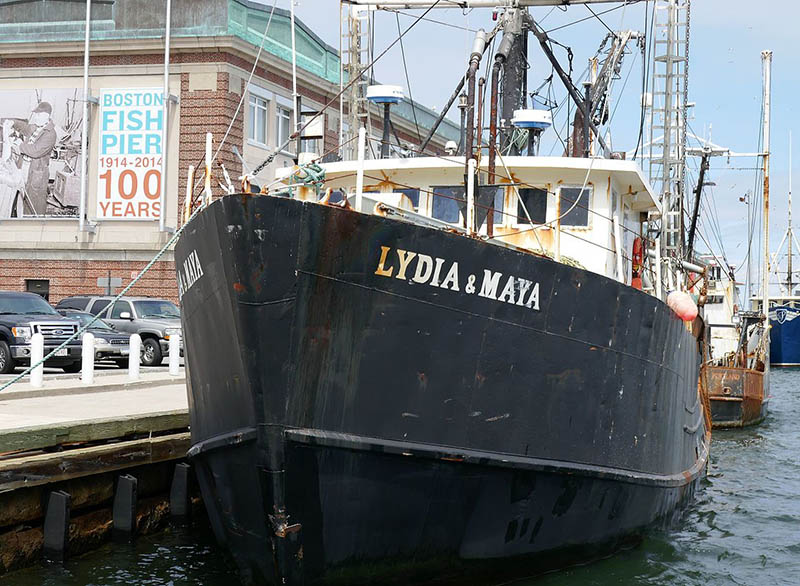The Lydia & Maya was not a lucky vessel. Back on Dec. 19, 2013, crewman Martin Gorham was working around the stern in rough seas when he went overboard and drowned. He was not wearing a PFD.
Then at about midnight on Aug. 17, 2016, the 71-foot steel stern trawler was heading across the Gulf of Maine to its home port in Boston, when it capsized and sank in 540 feet of water, 40-some miles south of Southwest Harbor, Maine.
No respect for gravity, a lack of sleep and probable drug use contributed to the sinking of the 49-year-old boat, according to the National Transportation Safety Board’s report on the accident, which was released on May 25.
After three days fishing over Jordan Basin, the Lydia & Maya’s four-man crew hauled back its last set about 8 p.m. on Aug. 16. By about 9:30 p.m. the haulback had been completed, and the crew took a break to rest and eat dinner, leaving 2,500 pounds of fish on the starboard side of the deck, 65,000 to 70,000 pounds in the hold, and about 7,000 pounds suspended above the aft deck in a net from the main boom.
Sometime between 10 p.m. and midnight, with winds up to 27 knots, the bag was still hanging from the boom when the guy at the wheel felt the Lydia & Maya list to starboard and heard a boom that was likely caused when the main boom broke, dropping the net and its contents on deck.
That submerged the starboard quarter up to the rail and pushed the starboard outrigger into the water. The list to starboard was so severe that going across the deck was like “walking up a wall,” said one crewman.
Just after midnight a distress call went out on channel 16. The crew pulled on survival suits and with some difficulty launched the life raft. By 2:50 a.m. all four crew were aboard a rescue helicopter.
Several things contributed to the Lydia & Maya’s capsizing. Leaving the catch suspended while underway raised the boat’s center of gravity, which reduced its stability. That stability was severely compromised even more when the bag of fish suddenly dropped to the deck. Assuming it fell on the starboard side, that’s where the boat’s center of gravity shifted to.
The stern scuppers were blocked, which prevented water from draining overboard. That decreased freeboard and also reduced stability.
The NTSB report said the crew “was operating in a sleep-deprived state” with as little as three hours of sleep in the three days of fishing, which demanded “physically strenuous activities, along with demanding cognitive duties such as navigating and operating heavy equipment.”
Then two of the crew tested positive for marijuana.
Summing up its report, the NTSB said the “probable cause of the capsizing and sinking of the fishing vessel Lydia & Maya was the uncontrolled drop of a suspended load onto the deck resulting in a sudden shift of weight that severely compromised the vessel’s stability. Contributing to the sinking was the combination of the crew members’ sleep debt, physical workload and potential drug use that likely affected their ability to recognize the hazards created by the suspended load on the main boom and the blocked scuppers on the aft deck.”







